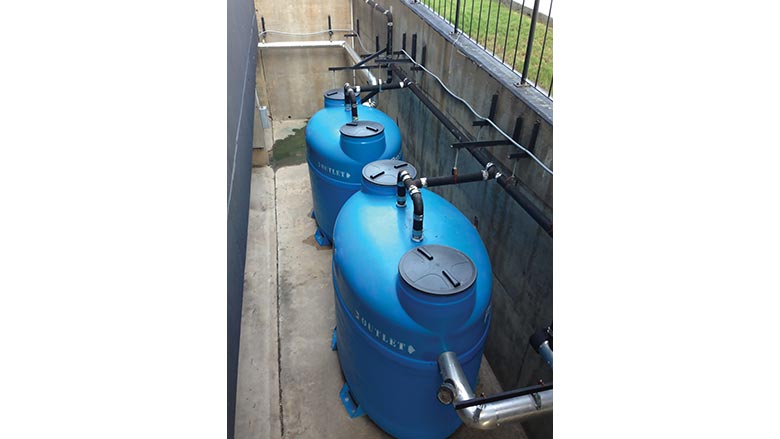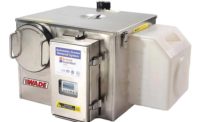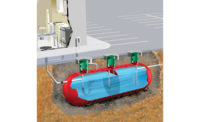At a busy, large seafood restaurant — one that specializes in southern-fried dishes — kitchen grease was moving faster than customers’ forks. But the restaurant’s concrete interceptor couldn’t handle the flow, causing lotchen grease to be discharged directly into the sanitary sewer system. The discharge created a blockage at a nearby municipal pumping station used to pump effluent to the local sewage treatment plant. The blockage clogged the station’s pumps, reducing its ability to transfer wastewater.
The concrete interceptor failed
The restaurant’s grease interceptor was severely corroded and needed to be replaced immediately. Pretreatment authorities confirmed the interceptor failed to meet local effluent “FOG” (fats, oils, grease) standards. They quickly raised flags, citing food grease and solids as the leading cause of sanitary sewer overflow.
When the sewers overflow, so does the bill — sanitary sewer overflows cost taxpayers billions of dollars every year and cause long-term damage to local infrastructure. The restaurant was facing fines and even the possibility of closure.
 Three months after the installation was complete, samples taken at the Proceptor showed the effluent FOG content was well within regulatory standards.
Three months after the installation was complete, samples taken at the Proceptor showed the effluent FOG content was well within regulatory standards.
The restaurant decided it would solve the problem by replacing its concrete interceptor with a Proceptor GMC-2000 fiberglass grease/solids interceptor, by Green Turtle. It chose Proceptor because the system is highly effective, easy to maintain and guaranteed not to corrode. With a 30-year warranty, the Proceptor system was easily installed and a low-cost maintenance plan was designed.
Crunching the figures, the restaurant owners realized it was cheaper and easier to install Proceptor once, rather than continually replacing corroded concrete interceptors. In addition, expensive concrete treatments do not prevent corrosion from grease and solids. As a Portland Cement Association study recently noted, “Protective surface treatments are not infallible,” when it comes to restaurant wastewater, mainly due to the acidic nature of stored fats and grease.
Meeting effluent requirements
Three months after Proceptor was installed, the lift station was again inspected and found to be completely free of grease build-up. Samples taken at the outlet of the Proceptor showed the effluent FOG content was well within regulatory standards.
Later sampling of the effluent taken from the lift station confirmed Proceptor’s efficiency, with the FOG measurement of 44 milligrams per liter, falling well below the locally required level of 100 milligrams per liter.
Green Turtle understand our customers would rather focus on their business, not their wastewater. Environmental regulations are getting tougher and more businesses need treatment systems to remove oil, grease and solids from their wastewater. Without proper treatment, a business needlessly wastes time and money while putting its reputation at risk.



